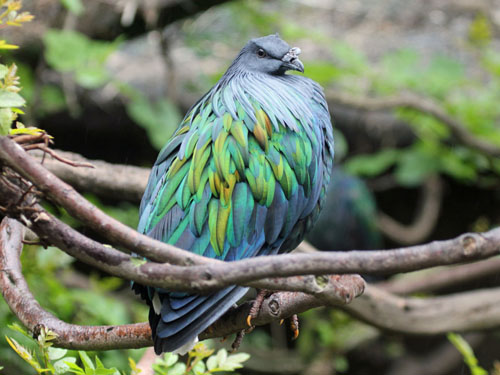IT’S BEEN a busy time for the Brilliant Birds residents at Edinburgh Zoo, as the youngsters took flight and left their nests.
Brilliant Birds has been fluttering with hustle and bustle, as several chicks put their flying skills to the test for the first time, earlier this week. The colourful youngsters who have taken flight in the last month include; three green-winged doves, three chestnut-backed thrushes and a Nicobar pigeon.
Edinburgh Zoo’s Brilliant Birds is home to many exotic and rare birds from across the globe. Green-winged doves are easily recognisable due to their emerald green wings, with only males sporting a grey patch on their head and shoulder. Native toIndonesia, the chestnut-backed thrushes are already extinct in certain areas and are distinguished by their trio of black, white and caramel chestnut feathers. Nicobar pigeons have a mixture of pure black and green feathers, and are also coming under threat in the wild, the tropical forest surroundings of Brilliant Birds is the perfect place for these exotic dwellers to thrive.

You can now see a chick of a Nicobar pigeon trying its wings in Edinburgh zoo
Sean Meechan, Bird Keeper at Edinburgh Zoo, said: “These past couples of weeks in particular have been busy for our chicks in Brilliant Birds; it’s a huge milestone for them and for us as their keepers. It’s great to see them go from being in their nests to taking their first flight. A few of them may have been a little unsteady to begin with in the air, and although a couple might need to work on their landing they will soon get used to using their wings.
“We have a variety of increasingly rare species at Brilliant Birds and have had great success with our breeding results recently. Our Nicobar pigeons and green-winged doves began to regularly produce youngsters towards the end of last year and have now reared seven chicks in total. The chestnut-backed thrush adults only moved into the aviary at the end of March and have already produced a trio of chicks. These youngsters will become much more independent over the next few weeks as they start to search for their own food their parents have done the teaching and now it’s over to them!”